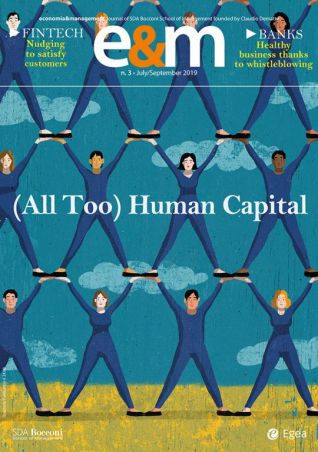E&M
2019/3
Meritocracy and Inequality in Selection
The profession of the recruiter has an active role in the encounter between the supply and demand of work. Recruiters have shown that their role is not simply that of matching the productive needs of enterprises and the existing characteristics of labor supply. In reality, they are intermediaries. In other words, recruiters have a certain influence in the “social construction” of the characteristics that the labor force should have to correspond to the needs of the demand.
The consequence of the translation of company needs into selection criteria is the potential social importance of certain characteristics of the workforce. In addition, on the one hand, faced with company needs that are hard to satisfy, the recruiter negotiates a revision of the standards set; on the other, they give a significant contribution to the determination of the characteristics necessary to cover a specific position in the event that the company has no specific ideas in that regard.
In general, all of this has significant consequences on the possible inclusion of candidates with certain characteristics in the selection process – or we could even say on their possible social inclusion.
L'ACCESSO A QUESTO CONTENUTO E' RISERVATO AGLI UTENTI ABBONATI
Sei abbonato? Esegui l'accesso oppure abbonati.



